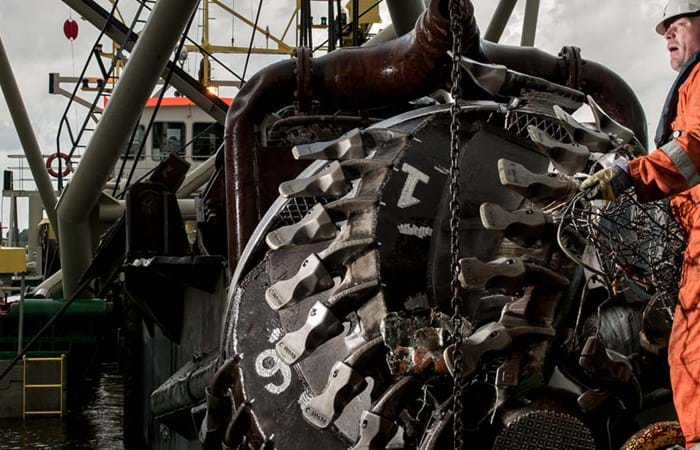The IJsseldelta project is part of the national Room for the River program, which comprises over 30 measures aimed at upgrading the flood defenses in the Dutch river areas. The project involves lowering the summer bed of the Lower IJssel river along a length of 7.5 kilometers near the town of Kampen and creating a bypass to the south of Kampen.
Isala Delta
Boskalis Nederland is executing the work in conjunction with Van Hattum and Blankevoort in the Isala Delta building consortium, which was awarded the Design & Construct contract by the Dutch Department of Public Works and the province of Overijssel. In addition to normal procedures the tendering process involved so-called competition-oriented dialogue. This special procedure involves conducting dialogue beforehand with the prospective contractors, giving Isala Delta a better understanding of what the clients wanted and giving the commissioning bodies a better idea of both the potential solution options and the project risks.
Work
The project consists of two measures to guarantee the future protection of the Kampen-Zwolle region against flooding: firstly the lowering of the summer bed of the Lower IJssel, involving the deepening of the river along a length of 7.5 kilometers between the Molenbrug and Eilandbrug bridges, and secondly the realization of the Reevediep, a new side branch of the River IJssel to the south of Kampen, towards the Drontermeer lake. This will also enhance the rural planning quality of the surrounding area. The natural flood protection in three flood plains will be reinforced. Over 300 hectares of new delta nature area will be realized in the Reevediep, including new walking and hiking paths and cycle tracks, and we are also creating a special channel for pleasure craft. As part of the Reevediep project Isala Delta will also realize an intake pipeline, a lock for pleasure craft, a bridge and two turning locks.
Planning schedule
Initial preparations started in the fall of 2014. Dredging work will commence in mid-2015, with the project becoming increasingly visible from then on. Under the current schedule the project to lower the summer bed will be completed by the end of 2016. We expect to deliver the entire project (stage 1) by the end of 2019.
